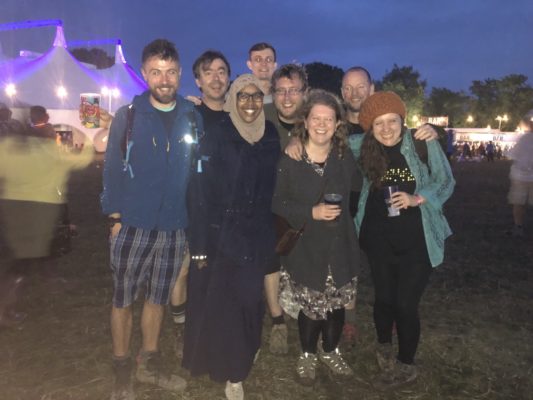2019 was a year which has seen Open Data Manchester develop and establish itself with new programmes and partners. The continuation funding from Luminate and the ongoing sponsorship by the Co-op Foundation has enabled us to lay the foundations that will make us operationally and financially more stable.
As a not-for-profit Community Interest Company(CIC) our income comes from a mixture of grant funding and commercial work, where the surplus from our commercial work gets reinvested into our programme. Over the coming year we will build on and diversify this income through developing work already underway and working with new and existing partners.
Our clients ranged from the local to the international, with projects for Open Contracting Partnership and the European Commission through the Digital Cities programme to local public sector and charities. The commissioned work was predominantly research followed by consultancy then training. We also managed to sell a few posters too.
We had a very ambitious programme that drew on the skills and knowledge from the team, the board of directors and our community. Development has started on the Declaration for Responsible and Intelligent Data Practice, born from our Knowable Building Framework work developed in 2017/18. This has engaged with public, private, academic and civil society communities to create a ‘statement of intent’ regarding what best practice in data looks like and how that is complied with.
Working with Dsposal we have created a prototype data standard in response to the DEFRA/GDS Govtech Challenge to help counter the £1 billion waste crime problem in the UK and to help boost recycling rates. Although the work wasn’t carried forward to stage two, the consortium who worked on the initial stage are exploring whether further development could be applied to waste coming from the plastics industry.
Our programme can seem a little quixotic, but much of the work that undertaken has a lineage. The Mapping Mobility programme that mapped the experience of disabled and elderly people when accessing Stockport Town Centre, evolved from the methodology developed for the Joy Diversion events where people go and explore, and take ownership, of the places where they live, work and play. This is in turn sprang from the So You Think You Know Your Country programme. It has now evolved into the Lexicon of Experience initiative, looking at the fundamental data structures that underpin planning and development in the urban built environment.
Data for Communities workshops took place in a number of libraries and town halls in Greater Manchester. This ‘spreadsheetless’ training introduced people to the data that was about themselves and their communities to enable them to understand what and how data was being used to shape their locality and help them scrutinise decisions. This work also has heritage and developed from the Deprivation vs Political Control visualisations and the subsequent local political representation work. It has been developed into a funding bid to develop the work as a short-run newspaper.
We have continued to do a year round programme of events with nearly 500 people attending our monthly meetups and events at The Federation. Events covered topics such as OpenStreetMap, the 2019 Local Election, Greater Manchester bus fare data, the 2019 Indices of Deprivation, and community showcases such as our Open:Data:Night — Data Viz special.
A number of these were collaborations with organisations like PyDataMCR and InnovateHer, and we in 2020 we’ll continue to build on these relationships and focus on collaborating with others in the community. We are also looking at running weekly Open Data Surgeries to help people with their open data problems.
In 2019 our biggest engagement event was the Blue Dot Festival where we invited 1,000 people to join our ODM staff and volunteers whilst they weaved, chatted and encouraged people to explore data and the different ways it is collected.
ODM’s strength is that it is a community organisation, powered by its community. It is a place where people can come together and feel welcome, propose ideas, develop new ones, conspire and participate. Data is about everyone and everywhere and Open Data Manchester is here to help.


